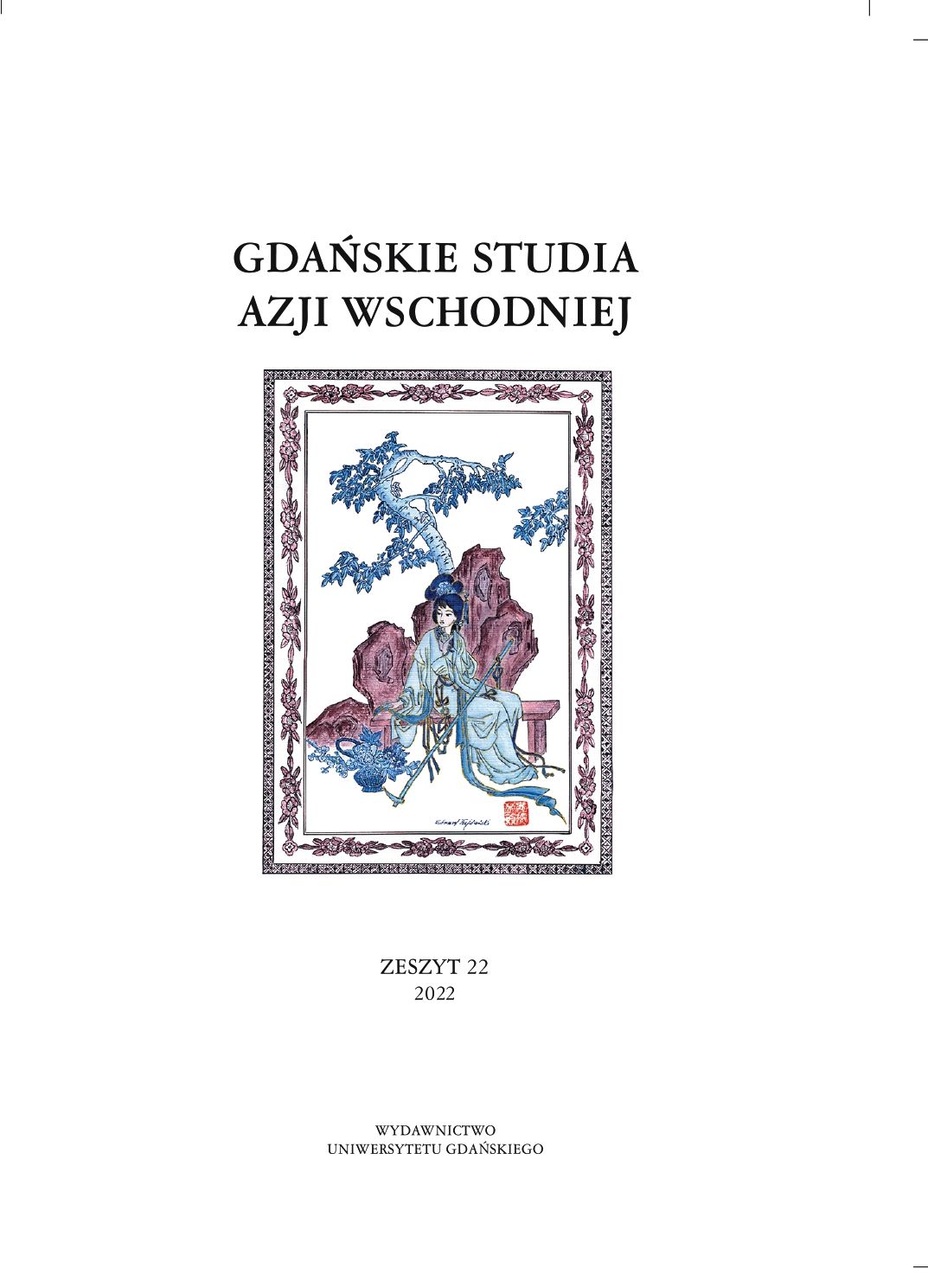Komodyfikacja krwi w wybranych utworach chińskiej literatury współczesnej na przykładzie Kronik sprzedawcy krwi Yu Hua oraz Snu wioski Ding Yana Lianke
Abstrakt
Narratives that touch upon the topic of physical disease have had a long-standing presence in Chinese literature. In many examples, such narratives serve to present certain abnormal conditions in society. The AIDS epidemic, which erupted in rural China in the 1990s – an event both recorded and officially acknowledged – is an example of such a horrific real-life event depicted in literary works. Blood-selling, which is known to be the direct cause of the tragedy, also became the starting point for two Chinese novels, both translated into major languages: Chronicle of a Blood Merchant by Yu Hua and Dream of Ding Village by Yan Lianke. Even though both novels present clear links to the AIDS epidemic, their content and form elicited contrasting reactions in China. This article presents metaphorical interpretations of how blood-selling is depicted in the novels. The comparison of these two helps to better understand the near opposite reception of the works. Furthermore, the proposed notion of commodification reveals the impermanence of the traditional mindset once a chance to improve the economic situation appears.
Downloads
Bibliografia
Chan Sh.W., Narrating Cancer, Disabilities, and aids: Yan Lianke’s Trilogy of Disease [w:] H.Y.F. Choy, Discourses of Disease: Writing Illness, the Mind and the Body in Modern China, Leiden 2016.
Erwin K., The Circulatory System: Blood Procurement, AIDS, and the Social Body in China, „Medical Anthropology Quarterly” 2006, vol. 20, no. 2.
Hua Yu, Chiny w dziesięciu słowach, przeł. K. Sarek, Warszawa 2018, s. 95.
Hua Yu, Kroniki sprzedawcy krwi, przeł. K. Sarek, Warszawa 2018.
Ikels Ch., Kindey Failure and Transplantation in China, „Pergamon” 1997, vol. 44, no. 9.
Ikels Ch., The Body as Medicine: Blood and Organ Donations in China [w:] A Companion to the Anthropology of Death, ed. A.C.G.M. Robben, Hoboken 2018.
Jones A.F., Afterword [w:] Y. Hua, Chronicles of a Blood Merchant, New York 2004.
Jun J., From the Commodity of Death to Gift of Life [w:] Deep China: the moral life of the person, what anthropology and psychiatry tell us about China today, eds. J. Jun, A. Kleinsman, Y. Yan, Berkeley 2011.
King R., „To Live”, „Chronicle of a Blood Merchant” reviewed by Richard King, https://u.osu.edu/mclc/book-reviews/to-live-chronicle-of-a-blood-merchant/#fn1 (dostęp: 16.12.2020).
Li Bing (李冰), Yan Lianke: You san zhong ren bu shihe kan Dingzhuang meng (阎连科:有三种人不适合看《丁庄梦》), https://www.aboluowang.com/2009/1019/147055.html (dostęp: 21.12.2020).
Lovell J., Introduction [w:] Lu Xun: The Real story of Ah-Q and Other Tales of China, The Complete Fiction of Lu Xun, London 2009.
Rushkoff D., Commodified vs. Commoditized, https://web.archive.org/web/20100221213504/http:// rushkoff.com/2005/09/04/commodified-vs-commoditized/ (dostęp: 28.12.2020).
Sontag S., Illness as Metaphor and AIDS and Its Metaphors, New York 1990.
Standaert M., Interview with Yu Hua, https://u.osu.edu/mclc/online-series/yuhua/ (dostęp: 14.12.2020).
Tsai C., In Sickness or In Health: Yan Lianke and the Writing of Autoimmunity, „Modern Chinese Literature and Culture” 2011, vol. 23, no. 1.
Watts J., Censor Sees through Writer’s Guile in Tale of China’s Blood-Selling Scandal, „The Guardian”, https://www.theguardian.com/world/2006/oct/09/books.china (dostęp: 23.12.2020).
Yan Lianke, Sen wioski Ding, przeł. J. Krenz, Warszawa 2019.
Zhang Yan (张琰), Yi sheng ju si, yi si qiu sheng —— 《Huozhe》, 《Xu Sanguan Mai Xie Ji》de shengcun zhexue (以生拒死,以死求生 ——《活着》、《许三观卖血记》的生存哲学), „Dongjiang Journal” (东疆学刊) 2003, vol. 20, no. 4.

 Uniwersyteckie Czasopisma Naukowe
Uniwersyteckie Czasopisma Naukowe





